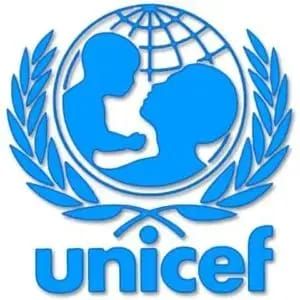The United Nations Children’s Fund (UNICEF) in partnership with the Zamfara State Government has officially launched the Zamfara State Policy on Food and Nutrition and commissioned a newly completed Nutrition Supplies and Commodities Warehouse in Gusau, the state capital.
The dual initiatives mark a significant step in the state’s commitment to combating malnutrition and improving public health.
In a landmark move to bolster social welfare and workforce development, a Memorandum of Understanding (MoU) was also signed between the Zamfara State Government, Federal University Gusau (FUGUS), and UNICEF to commence the training of Auxiliary Social Workers across the state.
Speaking at the launch event, Mr. Michael Juma, Chief of UNICEF’s Field Office in Sokoto, commended the Zamfara State Government for its leadership and foresight in addressing the nutritional needs of its citizens.
“This policy provides a clear roadmap for reducing hunger and malnutrition, enhancing sustainable agriculture, and promoting dietary diversity,” Juma said.
He emphasized the importance of inter-ministerial coordination for the successful implementation of the policy, calling nutrition a fundamental human right and urging its integration into state budgetary plans.
“Food security is built on accessibility, availability, and utilization—these are the guiding principles that will sustain nutrition services across Zamfara,” he added.
Juma also highlighted the critical role of the newly inaugurated warehouse in preserving essential supplies, including Ready-to-Use Therapeutic Food (RUTF) and vital medicines. While noting that air conditioning units have been installed, he stressed the urgent need for stable electricity to maintain the functionality of the facility.
In her remarks, Mrs. Nemat Hajeebhoy, UNICEF Nigeria’s Chief of Child Nutrition and Development, praised Governor Dauda Lawal for his unwavering commitment to fighting malnutrition in Zamfara.
She cited alarming statistics: “One in two children in Zamfara is stunted, and one in ten suffers from wasting. These are not just numbers—they represent lives and futures at risk.”
Mrs. Hajeebhoy noted that the new policy and warehouse are critical elements of a broader strategy aligned with the federal Nutrition 774 Initiative, launched earlier this year by Vice President Kashim Shettima, which calls for multi-sectoral action across Nigeria’s local government areas.
She warned that without urgent intervention, an estimated 250,000 children under five in Zamfara could suffer from wasting by 2025. “To treat and save these children, we will need RUTF and other nutrition commodities valued at approximately ₦19 billion,” she stated.
To support the effort, Mrs. Hajeebhoy revealed that UNICEF, with backing from international donors including the United States, United Kingdom, and European Union, has already secured ₦6 billion worth of life-saving nutrition commodities for Zamfara.
The launch of the policy and the commissioning of the warehouse are expected to catalyze coordinated, sustained action to improve food security, reduce malnutrition, and advance health outcomes in Zamfara State.















